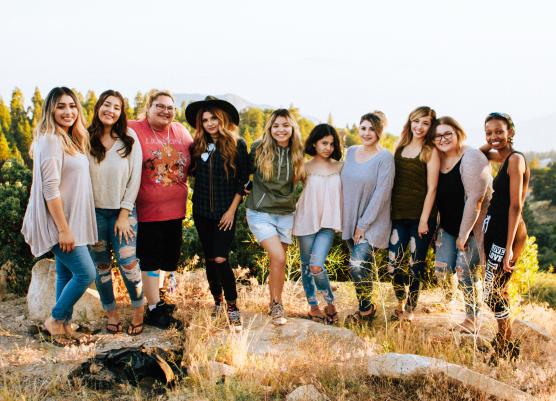A Letter to the Women of America
It’s a Friday night, and you find yourself at the nearest bar relaxing after a long work week. A man approaches you, compliments you, then offers to buy you a drink. Whatever the reason may be, you say, “No thanks” and try to continue your evening. The man then asks that oh so familiar question: “Do you have a boyfriend?”
Oh boy, here we go again.
At this point, you either lie to get him off your back, or you tell the truth. The answer doesn’t matter sometimes, so you prepare for the worst. He starts to get angry saying that he’s just being a “nice guy”. You try to explain that you’re not interested and that it’s nothing personal, but this just makes him angrier. He starts to insult you, demean you, and may even get physical. You end up being forced to leave to escape this belligerent man.
Sound familiar?
This is the reality for many women across America. We live in a society that doesn’t punish men for their actions, and one that even encourages them.
A survey conducted in 2018 found that roughly 81% of women have experienced some form of sexual assault: this includes verbal harassment, being physically followed, and receiving unwanted physical contact.
Unfortunately, I am a part of that 81%.
I was sexually assaulted by a family member when I was much younger. Some of my family said that if I hadn’t been dressed provocatively (I was wearing denim capris and a tank top by the way), then it never would have happened.
I was 12 years old.
Like me, many women are blamed for their assaults. Publicly scrutinizing a victim’s dress, mental state, motives, and history are some of the more common methods used to victim blame.
The fact is, the only person responsible for sexual assault or rape is the offender.
The #MeToo movement (a social movement where women speak out on sexual violence they have experienced) brought about a lot of awareness to these issues. As much progress as it has made, it has also brought negative attention and scrutiny. When levied against those in power over them, women’s genuine complaints are being written off.
A famous example of this was Dr. Christine Blasey-Ford’s accusations against Supreme Court Justice Brett Kavanaugh.
After his nomination to the court, Blasey-Ford raised accusations that Kavanaugh had sexually assaulted her in high school. Due to the timing of the accusation, those that saw to discredit her repeatedly called this into question.
This turned one woman’s nightmare into a political spectacle for the whole country to witness.
Ford was attacked, often claiming that she forged the story for attention and/or relevancy. Many questioned the legitimacy of her claim since Ford didn’t report the assault after it happened.
Does this mean it didn’t happen to me, either?
No.
I never reported my assault for my own personal reasons. You can bet your ass that if he were to come into a position of power then I’d let people know what kind of man he is.
Although there is no official study, the FBI estimates that less than 8% of rape allegations are false. However, official figures believe that the number of unreported cases of rape and sexual assault far outweighs the number of fake accusations. We need to advocate for change.
Woman all over America have started telling their stories and standing up for themselves: that is the first step. I don’t believe that change can happen in an instant, but instead, I hope that we can work to provide a culture that treats future women better than it has treated me.
















